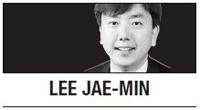
Many foreign colleagues of mine would ask: How could one deposit such an enormous amount money with a stranger without any tangible guarantee? Their surprise comes again when they hear that there is no monthly payment. One final surprise is that you get the entire deposit back when you vacate.
This is the “Jeonse” system in Korea, a unique house renting system only to be seen in Korea (other sporadic examples are found in other countries but not as prevalent as in Korea). Its popularity has been dwindling over the years since the 2008 financial crisis with a steep fall in interest rates, but it is still the major renting scheme in the country.
And now, this unique renting system is playing a role in real estate price hikes. In Seoul, particularly in the Gangnam area, a Jeonse deposit for an apartment unit is set at around 70-80 percent of the sales price. Which means one could buy a unit by supplying only 20 percent of the price: you can finance the remaining 80 percent by renting it as Jeonse.
You can then wait for the increase of the sales price. In a booming real estate market, as is happening now, this is a tempting and lucrative inducement. This type of so-called “investment” is now a major target of government regulation, as outlined in its ambitious regulation package in August last year.
In the Gangnam area, you may see weird congratulatory banners along the gates and walls of apartment complexes. The banners celebrate “passing the safety test,” but in fact, they celebrate the failure of the safety test. This is quite weird. Why would one celebrate the failure of a safety test on the apartment building he or she resides in?
The simple answer is: “Passing” the test in this way means the apartment complex can now go through reconstruction, which means the value of the residents’ properties will almost double. The reconstruction boom since 2015 has further fueled the real estate market, and has been a major target of the August regulation package.
Last August’s comprehensive set of regulations was supposed to curb Gangnam apartment prices. The market, however, is thumbing its nose at the regulators. The price has kept rising and is going through the roof. Foreign colleagues would not believe how much one small unit apartment along the Han River costs.
Understandably, with the steady increase of expatriates in Seoul, foreign purchases of real estate in the city have been on the rise. Property tax payments to the Seoul city government for ownership of houses in Seoul were 23,266 cases in 2012, which then increased to 32,055 cases in 2016. The number must be higher by now. If this increase is natural in response to the growing presence of foreign expatriates, the recent hot market in Seoul is now drawing the attention of foreign buyers for investment purposes.
Startled by the market response, regulators are now fiddling about with more drastic measures to subdue the market. Property tax increase for apartment ownership and reconstructing profit recoupment are the newest announcements to be in the regulators’ future plan.
In the meantime, even more worrying is the social divide that the most recent real estate boom and government countermeasures have laid bare.
The rise of the apartment price in just one enclave of Seoul that reflects the grim reality – another being the differences in general infrastructure and education facilities between the two sides of the Han River. Sadly and unfortunately, the hike is now further widening the gap between the rich and the poor.
We will most probably see Korea’s per capita gross domestic product pass $30,000 in 2018, but on the other side of this light lies the shadow of the growing social divide in our society.
The current administration stands on the platform to cure the social divide and support the livelihood of the underprivileged. Many people are seeing the real estate policy as an indicator whether the administration can pull off the job.
By Lee Jae-min
Lee Jae-min is a professor of law at Seoul National University. He can be reached at jaemin@snu.ac.kr. -- Ed.








